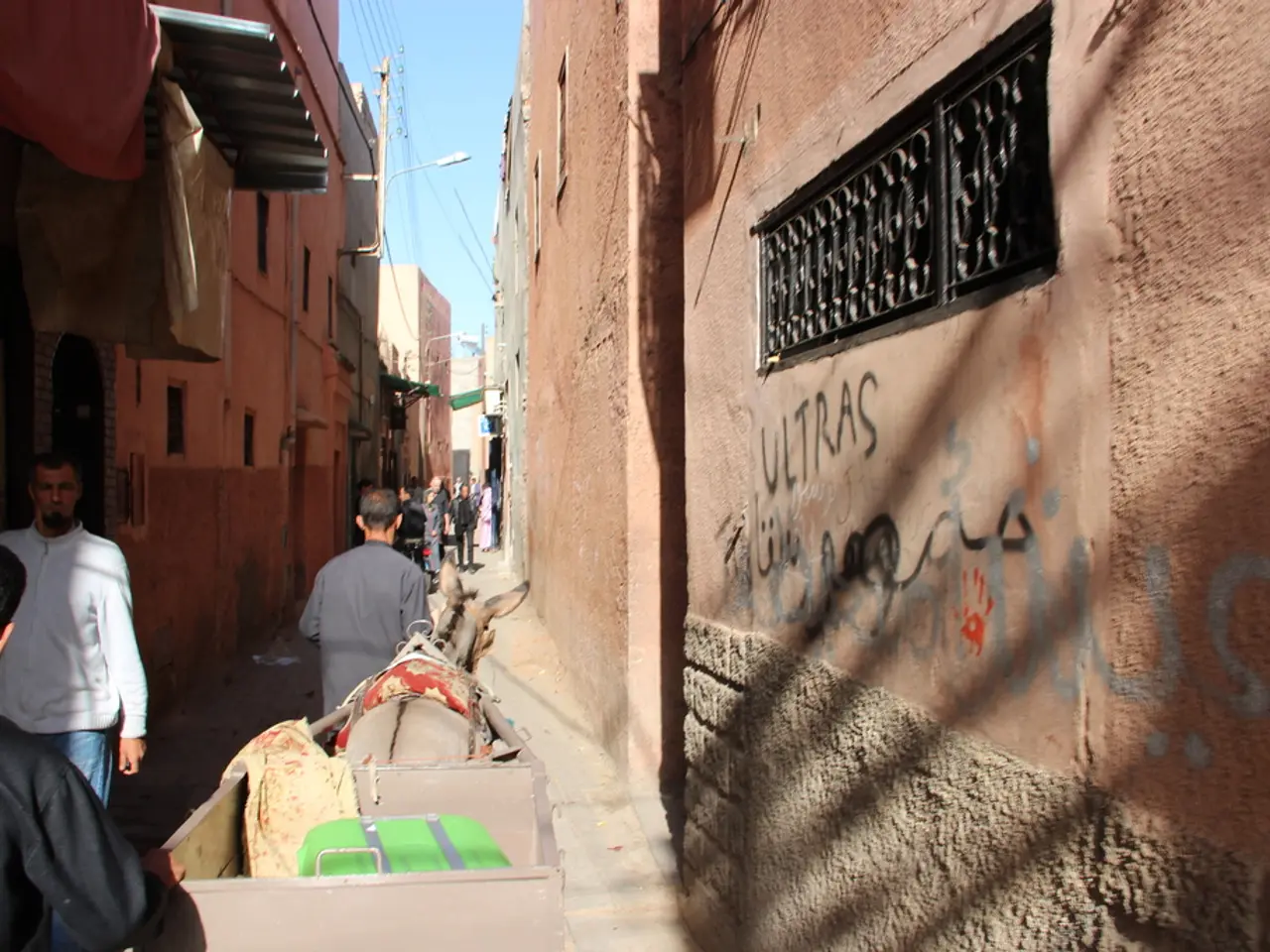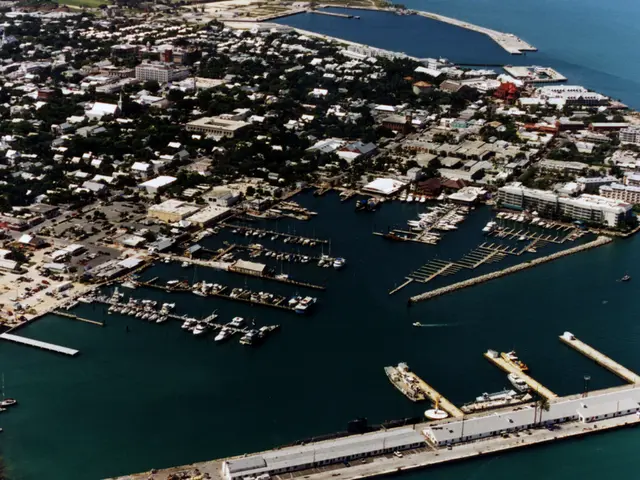The annexation of Gaza represents a significant historical blunder
The Israeli cabinet's decision to occupy the Gaza Strip has sparked widespread concern and controversy, with many questioning the long-term implications of this move.
The decision, driven less by military necessity and more by political calculation and ideological stubbornness, has been criticised as a historic mistake. Militarily, the prospects of success in the Gaza occupation are bleak, and the long-term security of Israel may be harmed due to the occupation, as political solutions are necessary for security.
Netanyahu's support for the occupation is not solely due to coalition pressures; he also rejects the two-state solution and weakens the Palestinian Authority as part of his political beliefs. The Finance Minister Bezalel Smotrich supports the occupation of Gaza because it is a step towards Jewish settlement. For messianic settlers, the occupation of Gaza is a means to shift Israel's borders and transform the country into a religious autocracy.
The occupation of Gaza threatens the lives of the approximately 20 remaining hostages, most of whom were released through negotiations. Only a handful of hostages could be freed alive through military operations.
The Israeli plan entails forcible evacuation of Gaza City residents, risking mass displacement of about one million people with devastating humanitarian tolls and potential violations of international law. The conflict and occupation have already devastated Gaza’s infrastructure, including homes, hospitals, schools, and essential services, leaving over 90% of homes damaged or destroyed and overwhelming medical facilities.
Severe malnutrition, especially among children, leads to lifelong physical and cognitive impairments, increased chronic disease rates, and intergenerational poverty and poor health outcomes. The occupation risks escalating a “forever war,” leading to insurgency by Hamas remnants and extremist groups, further destabilizing the region and complicating peace prospects.
The occupation plan is widely seen as violating international law and may constitute war crimes and crimes against humanity, drawing intense global criticism and diplomatic fallout. The decision to occupy Gaza may strain Israel's already precarious international relations with its allies.
Alternative solutions proposed to prevent these consequences include calls for an immediate ceasefire to protect civilian lives and allow free flow of humanitarian aid into Gaza. International bodies advocate for a two-state solution ensuring Palestinian self-determination, with occupation ended as per International Court of Justice rulings. Post-conflict recovery focused on rebuilding infrastructure, local food production, and economic livelihoods to break cycles of poverty and dependence on aid is also emphasized. The immediate and unconditional release of hostages held by Palestinian armed groups is highlighted as a necessary step for de-escalation.
In conclusion, the occupation of Gaza risks exacerbating humanitarian suffering, perpetuating conflict, and violating international law. Alternative approaches focus on ceasefire, humanitarian aid, political dialogue, and long-term reconstruction to address root causes and prevent further devastation. The Hamas, despite being weakened, is not defeated, and a political solution is necessary for a peaceful and self-determined life for Palestinians and Israelis.
- The controversy surrounding the Israeli cabinet's decision to occupy the Gaza Strip extends to general news and war-and-conflicts discussions, as it is criticized for being driven more by political motives and ideology than military necessity.
- The occupation of Gaza is a contentious political issue that encompasses war-and-conflicts and general news, with many questioning its long-term implications for Israel's security and the region's stability.








